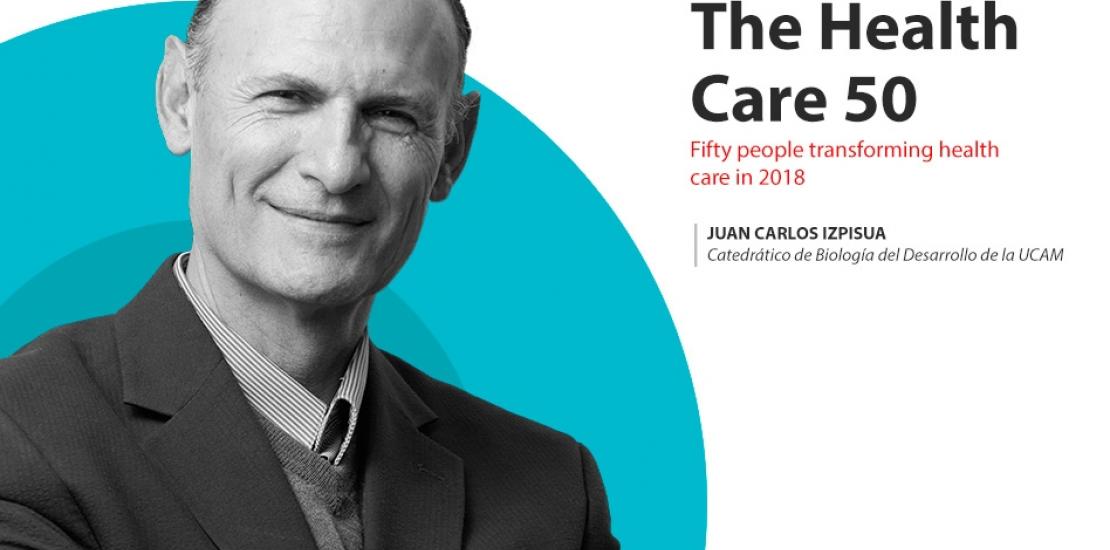Juan Carlos Izpisua, Professor in UCAM, is one of the 50 most influential people in healthcare industry in 2018
The prestigious TIME magazine from United States has named Izpisua, Professor of Developmental Biology in UCAM and Professor in Salk’s Gene Expression Laboratory in La Jolla, United States, as one of the worlds most relevant people due to “his scientific innovations to address the shortage of human organs for transplant”.
The spanish investigator Juan Carlos Izpisua, Professor of Developmental Biology in the Catholic University of Murcia and Professor in Salk Institute’s Gene Expression Laboratory (La Jolla, United States) publishes frequently in the scientific newspapers with the most impact in the world like Nature, Cell, Science due to his pioneering advances. Thanks to all this, now, TIME has included him as one of the 50 most influential people in the healthcare industry in 2018. The reason for this are his innovative and scientific advances in the shortage of human organs for transplant. He is the only spanish researcher included in this outstanding group. This list, made by journalists and editors of TIME, recognises the important work that these people are doing, trying to improve healthcare.
Generation of human organs
It’s been a little over a month since one of his most recent investigations was published: he successfully achieved the regeneration of the skin by applying cellular reprogramming ‘in vivo’, a milestone in the history of medicine that will help those who suffer from skin ulcers produced by serious burns or chronic diseases like diabetes.
The research team lead by the spanish scientist achieved, with projects promoted by UCAM, survival of the human cells and the integration of them in pig embryos during early stages of their development; rats blinded by retinitis pigmentosa to recover their eyesight; to reverse the symptoms of diseases like diabetes or muscular dystrophy; to enable the immune system to attack certain types of cancer; regenerate organs in vivo, like the skin, or erase epigenetic marks and reverse aging.
Juan Carlos Izpisua applies technologies of genetic edition and multipotent cells to study the embryonic development of the organism, the causes of diseases and aging, development of new medications and generation of organs for transplant. The latest scientific advances that have allowed to generate cells, human body tissue and organs in organisms of different animals, give a great opportunity without precedents to resolve serious problems that affect the human health, especially the need of organs and human body tissue for transplant.




